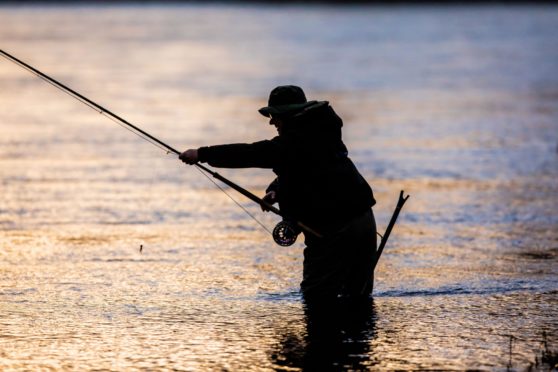Fisheries bosses have called for urgent support after new figures laid bare the crisis facing the Scottish salmon industry, even before the coronavirus pandemic hit.
Scottish Government figures released on Wednesday show the country’s wild salmon and sea trout populations remain critically small, with the 2019 catch only marginally better than the previous year’s historic low.
According to the data, 47,515 Atlantic salmon and 16,899 sea trout were caught in 2019 – the fourth and third lowest catches respectively since records began in 1952.
The announcement comes as the fisheries management sector is struggling due to the Covid-19 pandemic.
Tay District Salmon Fisheries Board (TDFSB) has been forced to furlough staff members.
A spokesperson for the board said: “The low salmon numbers combined with the Covid-19 situation have caused a major problem for our proprietors and anglers alike.”
Fisheries Management Scotland wants more support for the sector as it continues to carry out conservation and management work.
Dr Alan Wells, chief executive of Fisheries Management Scotland, said: “Salmon catches in Scotland remain at historic low levels, and there is now a collective recognition that this iconic species is in crisis.
“Despite the immense challenges posed by COVID-19, Fisheries Management Scotland and our members are continuing to operate to ensure that everything that can be done is being done to save Scotland’s iconic salmon and sea trout populations. But income to fisheries across Scotland is currently non-existent which is having a serious impact on our ability to fund crucial fisheries conservation and management work.
“Our immediate and pressing short-term priority is to ensure that existing COVID-19 financial support is accessible to the fisheries management sector and that new forms of support are made available in the critical situation where existing schemes don’t apply.”
In December TDSFB put it to its members that all salmon caught in the River Tay in 2020 should be returned.
In a vote, 52% of landowners supported the idea of a 100% catch and release enforcement for a limited number of years. However, the board did not pursue the matter as members felt they did not have a strong enough mandate.









